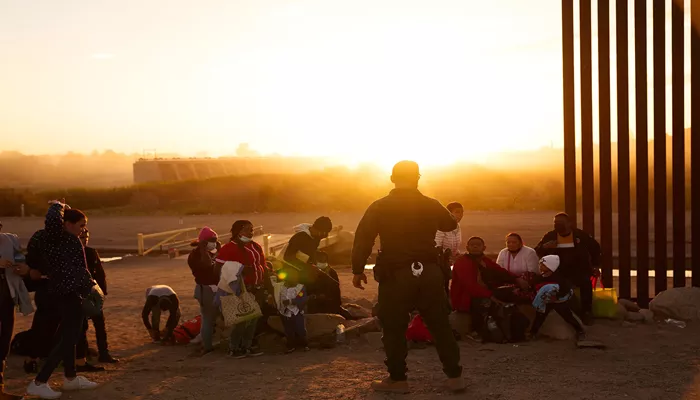As someone of Irish Catholic descent, I have always been largely pro-immigrant. All eight of my great-grandparents were born in Ireland, and my family instilled in me the notion that being “Irish” was as important, if not more, than being American.
Though I did not always live up to my mother’s strict definition of Irishness, which involved a degree of hostility toward other traditions, my father’s more open-minded perspective, shaped by his Army service, influenced me. This balance between tradition and tolerance was common among my cousins as well. Irish American women, as I have often witnessed, are formidable.
For an excellent exploration of Irish American resilience, read Dennis Lehane’s novel Small Mercies.
Historical Parallels Between Irish and Modern Immigrants
When my ancestors arrived in the U.S. in the mid-19th century, they faced the same kind of fear and anger that is now directed toward Spanish-speaking immigrants. Abraham Lincoln famously addressed the anti-immigrant sentiment of the time, especially from the Know-Nothing Party, which was essentially the MAGA movement of its era.
In an 1855 letter, Lincoln wrote, “We begin by declaring that ‘all men are created equal.’ We now practically read it ‘all men are created equal, except negroes.’ When the Know-Nothings get control, it will read ‘all men are created equal, except negroes, and foreigners, and Catholics.’”
The Know-Nothing Party eventually fractured over the issue of slavery, but the underlying bigotry did not disappear entirely. Today’s MAGA-driven outrage over the so-called “border crisis” is just a continuation of that same instinctive fear.
False Claims About Immigrants Fuel Political Agendas
Recently, a Republican presidential candidate made inflammatory remarks, claiming, “Under the Harris-Biden regime, your government imported murderers, child predators, and serial rapists from all over the planet.” There is no evidence to support this. In fact, studies show that immigrants are less likely to commit violent crimes than native-born Americans.
Additionally, the notion that immigrants are taking all new jobs created under the Biden administration is equally false. It defies common sense. How likely is it that immigrants are the sole beneficiaries of job growth?
On a personal note, I am grateful to the highly skilled Indian American doctors who cared for me at the University of Arkansas for Medical Sciences during a recent illness. They are all legal immigrants, highly educated, and compassionate. Yet, I’m sure they face judgment when they step outside the hospital.
We are fortunate to have them.
The Hard Work Many Immigrants Do
As for undocumented immigrants, most are doing jobs that native-born Americans are unwilling to take. These are tough, often dangerous jobs that don’t require English proficiency, like harvesting crops, working on rooftops in extreme heat, or butchering animals in slaughterhouses.
This is similar to the kinds of work my Irish ancestors did in the 19th and early 20th centuries before political machines began to dominate police and fire departments. I recently met a young Chinese American medical technician from Los Angeles, and when I joked that our great-grandfathers might have met while building the transcontinental railroad, she had no idea what I was talking about.
Her grandparents spoke Mandarin at home, and she attended UCLA. This, too, is the American way.
Modern Immigration and Child Labor Concerns
Today, almost everything we eat has passed through the hands of Spanish-speaking immigrants at some point in its production. Recently, Arkansas repealed many of its child labor laws, with the state’s MAGA-aligned governor, Sarah Huckabee Sanders, arguing that parents, not government bureaucrats, should decide what’s best for their children.
However, the reality is that this move benefits pork and poultry producers. Undocumented children, some of whom have no parents or have been separated from their families due to Trump-era policies, are now working in slaughterhouses, cleaning up after midnight. This grim situation is exacerbated by the lack of proper oversight.
If Trump is re-elected, he has promised to deport millions of undocumented immigrants. The logistics of such a mass deportation are both unfeasible and unaffordable. More importantly, if this were to happen, who would do the labor-intensive jobs that immigrants currently fill? It won’t be MAGA supporters cleaning toilets or hammering shingles.
Balancing Compassion and Immigration Control
None of this is to say that the U.S. can absorb the millions of people from across the globe who seek refuge here. I suspect that President Biden’s own Irish Catholic background has played a role in his administration’s delayed response to the situation at the Mexican border.
Even Ireland, a nation known for its historic sympathy toward the underdog, is beginning to feel the strain of unchecked immigration. Humans, by nature, tend toward tribalism.
Images of chaos at the border and in cities where busloads of undocumented immigrants were sent have sparked anxiety, even among Americans who want to help. Having spent time traveling in Mexico, I’ve come to appreciate the culture and people, but the recent scenes of disorder are unsettling.
The Strength of Orderly Immigration
The U.S. has always thrived on the orderly immigration of talented, hardworking individuals. It’s one of the country’s greatest strengths. Most Americans understand this. But the key word is “orderly.” Effective immigration control, based on fairness and compassion, will ensure that America continues to be a place where newcomers can succeed while maintaining social stability.


